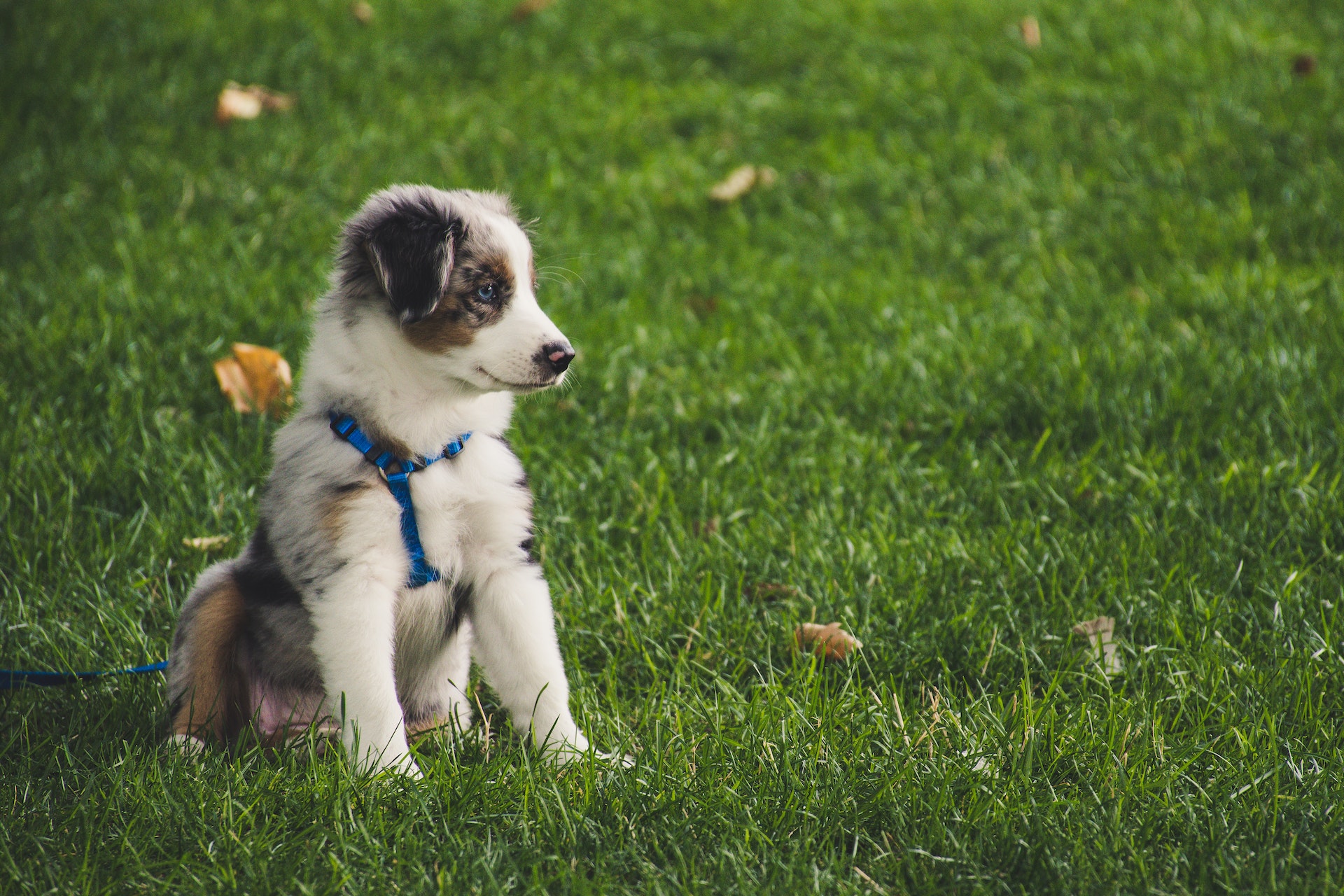As a dog owner, you know how important it is to keep your furry friend healthy and happy. One aspect of their health that may not immediately come to mind is the type of grass in your yard. Choosing the right grass type for your dogs can actually play a significant role in minimizing the risk of health issues for your pets.
Dogs spend a lot of time outdoors, playing, running, and exploring. This means they’re exposed to the grass, soil, and other outdoor elements in your yard. Certain grass types can be more susceptible to pests and diseases, which can then be transmitted to your dogs. Additionally, some grass types can be more easily damaged by dog urine or heavy foot traffic.
By choosing the right grass type for your dogs, you can minimize the risk of these issues and ensure that your pets can enjoy a healthy and safe outdoor space. In this article, we’ll discuss the factors to consider when choosing grass types for dogs and highlight some of the best grass types for your furry friends. We’ll also provide tips for maintaining your lawn when you have dogs.
Factors to Consider When Choosing Grass Types for Dogs
When it comes to choosing the right grass type for your dogs, there are several factors to consider. Here are some of the key factors that can impact the health and well-being of your pets:
Climate and Weather Conditions
Different grass types thrive in different climates and weather conditions. Some grass types are more suitable for hot and dry climates, while others can withstand colder temperatures and frost.
Soil Type and Quality
The type of soil in your yard can also impact the health of your grass and your pets. Some grass types do better in sandy soil, while others prefer clay or loam. Additionally, the quality of your soil can impact how well your grass grows and how resilient it is to wear and tear.
Sun and Shade Exposure
The amount of sun and shade your yard receives can also impact the health of your grass and your pets. Some grass types do better in full sun, while others can tolerate partial shade.
Size and Breed of Dog
The size and breed of your dogs can also impact the type of grass that is best for your yard. Larger dogs may need more durable grass types that can withstand heavy foot traffic, while smaller dogs may not have as much impact on the grass.
Lawn Traffic
Finally, the amount of traffic your lawn receives can also impact the health of your grass and your pets. If your dogs spend a lot of time playing and running on the grass, you’ll need a grass type that can handle the wear and tear.
Considering these factors when choosing a grass type can help ensure that you select a variety that is suitable for your dogs and your climate.
Best Grass Types for Dogs
Now that we’ve covered the factors to consider when choosing a grass type for your dogs, let’s take a look at some of the best grass types for pets:
Bermuda Grass
Bermuda grass is a popular grass type for dog owners because it is highly durable and can withstand heavy foot traffic. It also does well in warm and dry climates, making it a great choice for areas with hot summers.
Zoysia Grass
Zoysia grass is another highly durable grass type that can handle heavy foot traffic. It also does well in hot and dry climates and is known for its thick, lush appearance.
Fescue Gross
Fescue grass is a good option for areas with colder temperatures and frost. It is also more resistant to dog urine spots than some other grass types, making it a great choice for pet owners.
Ryegrass
Ryegrass is a fast-growing grass type that is great for areas with moderate temperatures. It is highly resilient and can handle heavy foot traffic, making it a good choice for pet owners.
When selecting the best grass type for your dogs, consider the factors discussed in section 2. For example, if you live in a hot and dry climate with a larger dog that spends a lot of time outside, Bermuda or Zoysia grass may be the best option. If you have a smaller dog and live in an area with colder temperatures, Fescue grass may be a better fit.
It’s also important to note that no grass type is completely immune to damage from dogs. Even the most durable varieties can be affected by pet waste and digging. Regular maintenance is key to ensuring that your grass stays healthy and resilient over time.
Grass Maintenance for Dog Owners
Once you’ve chosen the right grass type for your dogs, it’s important to maintain your lawn properly to keep it healthy and looking its best. Here are some tips for grass maintenance for dog owners:
Proper Watering and Fertilization
Regular watering and fertilization can help keep your grass healthy and strong. Be sure to follow recommended watering and fertilization schedules based on the grass type you have.
Regular Mowing and Edging
Regular mowing and edging can help prevent your grass from becoming too long and tangled. It can also help keep your lawn looking neat and tidy.
Dealing with Pet Waste
Pet waste can be a challenge for grass maintenance. Be sure to promptly clean up pet waste to prevent it from damaging your grass. You may also want to consider using a pet waste removal service to help keep your lawn clean.
Preventing Damage from Digging and Urine Spots
Dogs can also cause damage to grass by digging and creating urine spots. To prevent digging, provide your dogs with designated areas for digging and play. To prevent urine spots, try watering your lawn immediately after your dog urinates to dilute the urine.
By following these tips, you can help ensure that your grass stays healthy and resilient over time, even with dogs in the yard. Regular maintenance is key to preventing damage and keeping your lawn looking its best.
Conclusion
Choosing the right grass type and maintaining your lawn properly can make a big difference in the health and appearance of your yard when you have dogs. By considering factors like climate, soil quality, sun exposure, and the size and breed of your dogs, you can select a grass type that is durable and resistant to damage.
Some of the best grass types for dogs include Bermuda grass, Zoysia grass, Fescue grass, and Ryegrass. Each grass type has its own unique characteristics that make it suitable for different situations.
In addition to choosing the right grass type, proper grass maintenance is also important for dog owners. By watering and fertilizing your lawn regularly, mowing and edging regularly, dealing with pet waste promptly, and preventing damage from digging and urine spots, you can help ensure that your grass stays healthy and strong over time.
In conclusion, by choosing the right grass type and taking good care of your lawn, you can create a safe and comfortable outdoor space for your dogs to enjoy while also keeping your yard looking beautiful. If you’re unsure which grass type is best for your specific situation, be sure to consult with a professional landscaper or lawn care expert.








